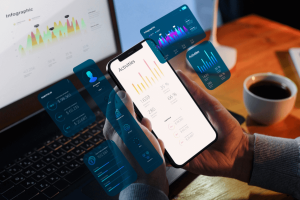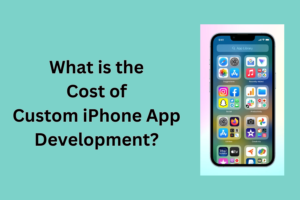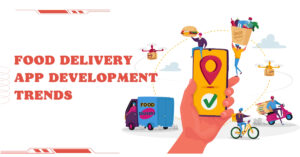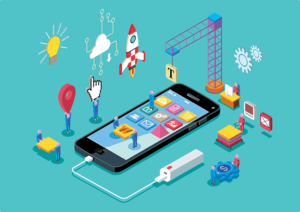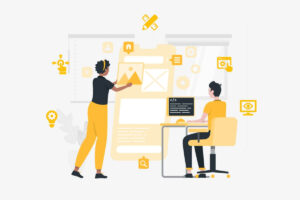Leading IoT Mobile App Development platforms in 2021

We all are aware of the breakneck speed at which the connected reality of gadgets is taking over everyday reality, whether in our smart homes or in smart workplaces or in internet connected manufacturing plants or in modern healthcare facilities or in smart connected vehicles on the road. Naturally, the popularity of the IoT apps is skyrocketing more than ever before.
Choosing the right development platforms for these IoT apps is crucial for ensuring great app performance and engaging user experience. The choice of app features and the user experience to a great extent depends on the IoT cloud platform you choose.
Here we are going to present the leading IoT app development platforms that developers will be delighted to use for their upcoming IoT app projects.
Google Cloud IoT
Google as the leading multi cloud vendor came up with its own IoT platform and it is preferred by world’s leading Internet of Things (IoT) app projects. The platform brings together numerous web services with a consistent focus on delivering value.
The key characteristics of Google Cloud IoT platform include the following.
- It is equipped to deliver artificial intelligence (AI) and machine learning (ML) capabilities.
- It offers a real time data analytics engine.
- Google Cloud IoT offers engaging data visualization for exceptional ease of use.
- Google Cloud IoT allows tracking location in real time through the app.
Some of the core use cases of Google Cloud IoT include the following.
- Well-planned and step by step maintenance requirements in certain industries.
- Logistics, supply chain and forger industries where tracking assets in real-time is required.
- Industrial IoT environments such as manufacturing systems and clinical environments where inventory tracking is essential.
- Smart homes, connected public places, transport systems and buildings.
IBM Watson IoT
IBM Cloud offers a fully managed cloud based IoT platform to allow smooth device management with highly scalable connectivity, safe and secure communication and comprehensive management of data lifecycle.
Some of the key features of IBM Watson IoT include the following.
- Capable to ingest data from a variety of sources by using MQTT.
- Smooth access to most updated data through the Cloudant NoSQL database solution.
- Inbuilt data monitoring dashboard system to track all the assets
- Robust data analytics engine for processing multitude of data driven metrics
- Cloud based storage solution to archive data for long-term.
Some of the core use cases of IBM Watson IoT platform include the following.
- Logistics, shipping and retail supply chain management systems.
- Administrative and legal compliance mechanisms.
- Data storage and management of public infrastructure.
- Data management and analytics corresponding to energy consumption.
Cisco IoT Cloud Connect
Cisco IoT Cloud Connect is both designed for industrial as well as individual use cases and it is developed by keeping the users in mind. Cisco has also established itself as a player in the field of connected device manufacturing and provides IoT hardware of different types including connected switches, gateways, access points, routers, etc.
Some of the key features of Cisco IoT Cloud Connect include the following.
- Robust industrial systems with connected hardware
- High-level security systems with connected cameras and monitoring devices.
- Edge computing environments.
- Central data repository and connectivity management solutions.
Some of the core use cases of Cisco IoT Cloud Connect include the following.
- Connected vehicles and transport systems
- Fleet management platforms.
- Home security and smart home automation.
- Terminal payment and Point of Sale (POS) systems.
- Predictive device and system maintenance.
- Industrial Internet of Things (IIoT) environments.
- Connected healthcare systems.
Salesforce IoT Cloud
Salesforce, the company widely known for customer relations management has now come with its own IoT solutions for empowering CRM with personalised attributes and data-driven insights. Salesforce IoT Cloud facilitates highly context-based actions based on real time data inputs.
The key features of Salesforce IoT Cloud include the following.
- Fully integrated system with customers, IT solutions and CRM.
- Ready to configure rules, use conditions and events just by using a point-and-click interface.
- Compatible with different third-party web platforms, services and other digital apps.
- Offers a proactive way to address all customer problems and requirements.
The key use cases of Salesforce IoT Cloud include the following.
- Customer focused businesses requiring to tap on customer insights frequently.
- Government agencies and administrative departments needing access to data driven insights for government projects.
- Manufacturing plants and facilities where data driven insights are required to maintain the inventory, demand and supply with proper balance.
- Financial and banking services focused on customer relationship management.
- Marketing and sales departments focusing on customer intent and buying signals.
IRI Voracity
When you require an inclusive data management and analytics platform with great control mechanisms for IoT data, IRI Voracity comes as the perfect fit. The platform is known for processing Big Data by utilising two engines, respectively IRI CoSort and Hadoop.
Some of the key features of IRI Voracity include the following.
- The platform offers a robust data administration portal for easy data search and classification.
- The platform fully complies with the data privacy norms by utilising encryption technique and by maintaining anonymous character of the data source.
- It offers a really fast data alteration and analytics platform to help manage data with smart tools.
- The platform also offers a fully loaded database operations environment to take care of all data through a single window.
Some of the key use cases of the platform include the following.
- Big Data analytics
- ETL modernization and data alteration
- Data governance and data management
Conclusion
Which platform is the best for your IoT mobile app project? Well, there cannot be a straightforward answer to this question since there are pros and cons of each platform and the choice depends on several factors including the size of your business, the character and volume of data and the required technical capabilities.
Author Bio:
Christian Braad is a business partner at We App IT – A leading software development company providing services since 2016. He has great knowledge in Android & iOS App Development and also writes articles about mobile app development, UI/UX designing with his years of experience in the app development industry

